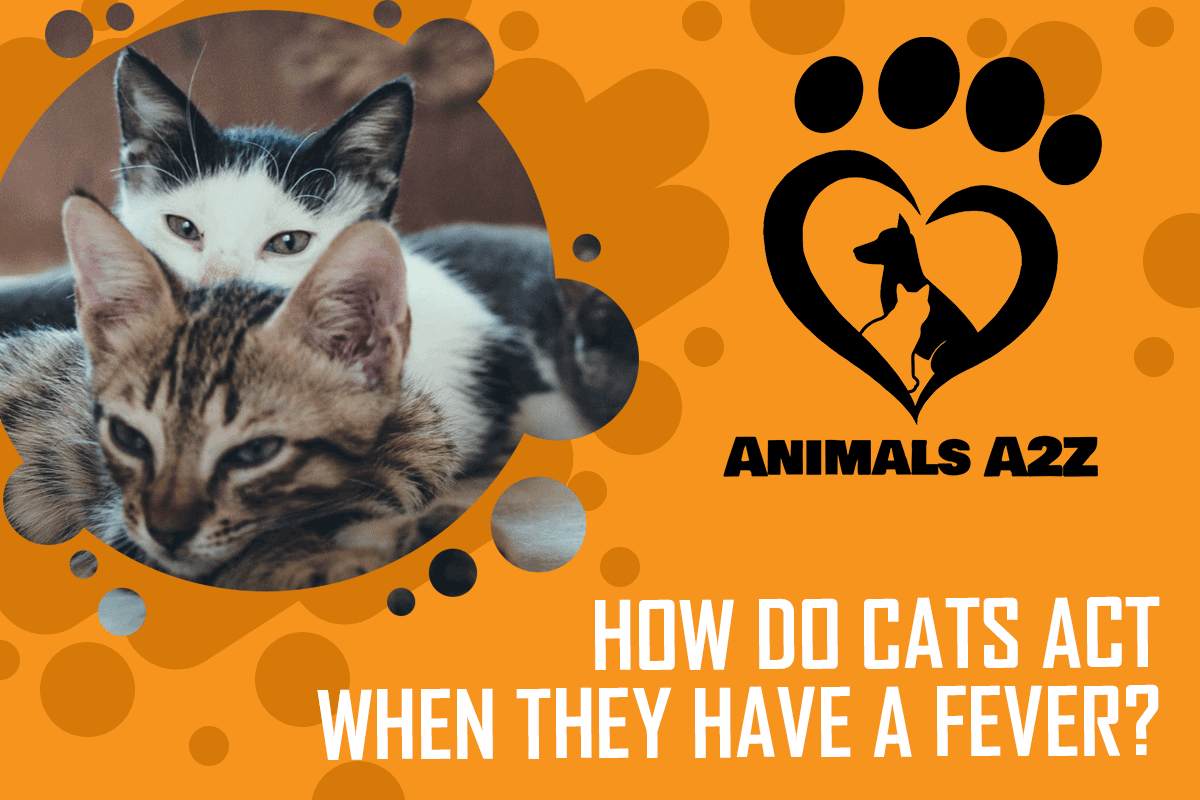When your cat is under the weather, chances are she cannot exactly ask for an ice pack or a pain reliever to help him feel better, so you might find yourself asking if your cat has a fever or not. How can you tell if your cat has a fever? In this post learn how to identify the symptoms, signs, causes, as well as treatment related to a cat’s fever.
Table of Contents
Understanding Feline Fever
In humans, you can simply find a clue that a person has a fever if he has a warm forehead. However, you can’t be able to tell if your kitty has a fever just by feeling for a dry, warm nose, as what may people believe. One way to know for sure if your cat has a fever or not is to take his temperature.
Cats’ normal temperature ranges from 100.4 degrees Fahrenheit to 102.5 degrees Fahrenheit. A feline fever occurs when a cat’s temperature rises above 102.5 degrees Fahrenheit. Even though fevers might be helpful in terms of fighting a disease, a feline fever that’s higher than 106 degrees Fahrenheit can possibly result in damaged organs. So, make sure to call or visit your vet right away the moment your feline friend has a high fever.
Understanding Fever in Cats
An increase in a cat’s body temperature is called hyperthermia. Unregulated or abnormal hyperthermia in cats might be caused of an increased muscle activity or your cat being in a hot environment, for example. But a fever is a regulated, specific type of hyperthermia.
A fever in cats usually takes place when his immune system is activated by certain conditions like:
- A tumor
- A viral, fungal, or bacterial infection
- Certain medications
- Diseases like lupus
- Injury from trauma
A fever in cats that lasts more than 2 weeks without apparent reasons is referred to as FUO or fever of unknown origin.
Symptoms of A Fever in Cats
There are some tell-tale signs that tell a human has a fever and these symptoms are also visible in cats, like lethargy or weakness, lack of appetite, dehydration, shivering, or warm ears. Aside from the increased respiratory rated and/or rapid heart rate, cats might also show other symptoms that may causing the fever, depending on what certain ailment is troubling your cat.
The most effective way to know if your feline friend has a fever is to take his temperature.
Signs Your Cat Has A Fever
Diseases that can cause feline fever can also show telltale behaviors in cats. These behaviors evolved in wild animals in order to help them survive illness and allow cats to conserve their energy in order to produce a fever. These fevers fight disease through stimulating their immune system and to slow the growth of viruses and bacteria.
Watch for these telltale signs of a fever in cats:
- Lack of activity or energy
- Loss of appetite
- Depression
- Decreased grooming
- Decreased drinking
- Rapid breathing or shivering
Your cat might also display other signs of illness including diarrhea, vomiting, or sneezing.
Causes of A Fever in Cats
Once you determine that your kitty has a fever, your veterinarian will then determine whether further tests are required in order to determine the real cause. Knowing the health history of your cat will be very helpful in this process.
Similar to a fever in humans, there’s also a lot of possible causes for feline fever and the most common one is a bacterial infection. Other possibilities also include inflammatory or immune system issues, a disease or a disorder, and exposure to toxins.
[crp]
Common Questions About How Cats Act When They Have A Fever
How Do I Know When My Cat is Ill?
These can be the most common signs when your cat is sick:
- Blood in vomit, stool, or urine
- Unexplained weight loss or gain
- Litter box issues
- Constipation or diarrhea
- Changes in drinking habits and appetite
- Mobility problems
- Repeated vomiting
- Behavioral changes
If some of these signs are present and you suspect that your cat is sick, it’s always best to take him to your trusted vet.
How Long Does A Cat Fever Last?
Once your cat has a fever infection, he will likely carry the bacteria for months. During this time, he can also pass on the infection to other animals. Cats with an infection usually have no signs or symptoms, however, they might have a high fever which lasts for 48 to 72 hours.
Can Cats Die from Fever?
Even though fevers might be sometimes helpful in fighting off a certain disease, the truth is that a fever that’s higher than 106 degrees Fahrenheit can eventually lead to damaged organs. If your cat’s organs are damaged, it will result in a dangerous illness that may be irreversible.
So, to make sure that your cat is safe, contact your veterinarian immediately if your cat has a very high fever.
Conclusion
If your cat is exhibiting signs of a high fever the whole day, you need to see your vet right away. Your trusted veterinarian can be able to conduct specific tests in order to determine the cause of the fever. He or she will also take the necessary steps to make sure the underlying problem is treated. For example, if the cause is a bacterial infection, antibiotics may be given to your cat.
Aside from that, severe dehydration when your cat is sick is treated with subcutaneous or intravenous fluids.
Never give your kitty medication without your vet’s advice. Some medications for a fever, like acetaminophen, are not safe for cats.


